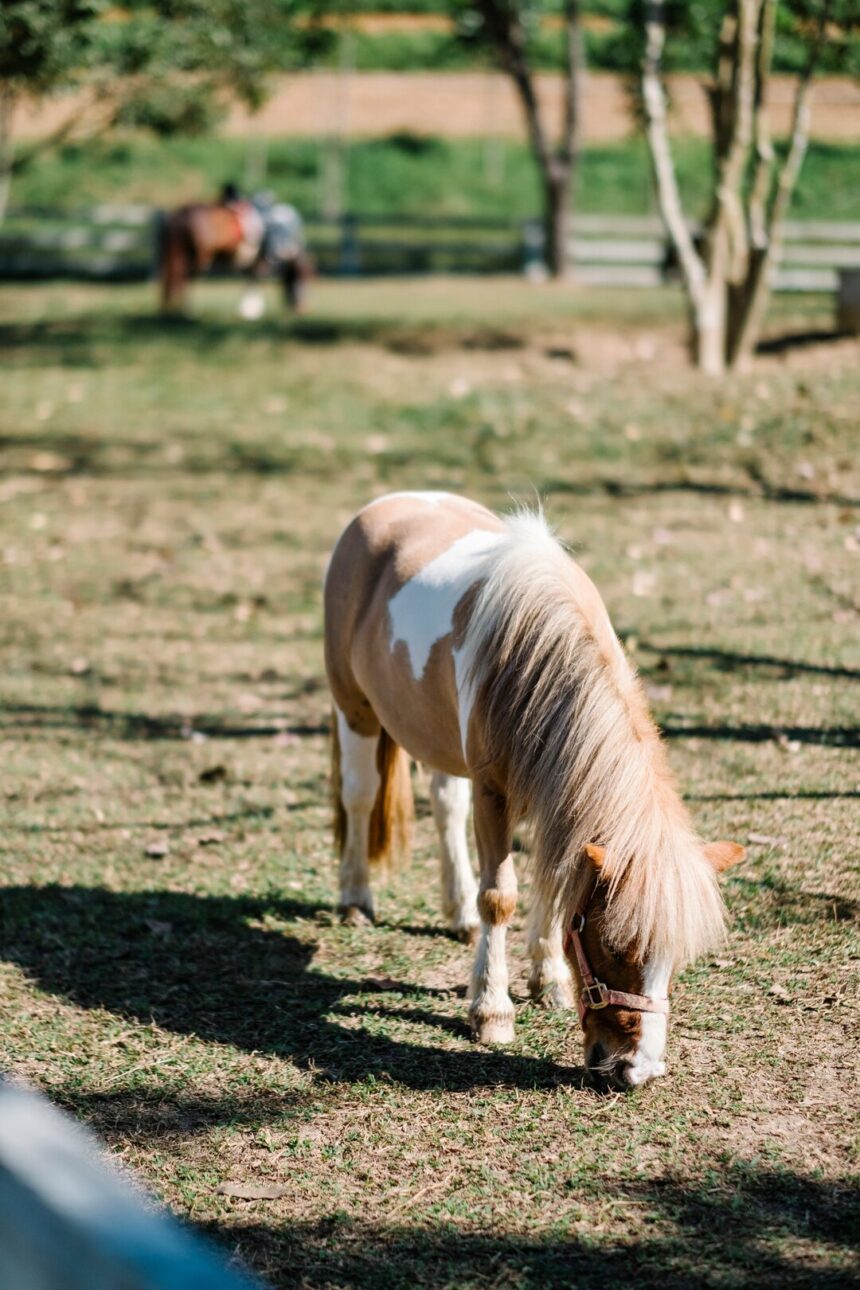Miniature horses, with their diminutive stature and endearing charm, have captured the hearts of equestrian enthusiasts worldwide. In South Africa, breeding and farming miniature horses offer a unique and rewarding endeavor for equine enthusiasts seeking to delve into the world of small equines. Whether for companionship, therapy, or showing, miniature horses bring joy and fascination to farms across the country. Here are ten key insights to consider when embarking on breeding and farming miniature horses in South Africa:
1. Miniature Horse Characteristics: Miniature horses are defined by their small size, typically standing under 34 inches tall at the withers. Despite their diminutive stature, they exhibit the same conformation and proportions as their larger counterparts, resembling full-sized horses in miniature form.
2. Versatility: Miniature horses are remarkably versatile animals, capable of participating in a wide range of activities including driving, showing, therapy work, and companion animal roles. Their gentle nature and manageable size make them suitable for various equestrian pursuits.
3. Space Requirements: Due to their small size, miniature horses require significantly less space compared to full-sized horses. However, adequate pasture or turnout areas are still essential for their physical and mental well-being. Ensure access to ample grazing and shelter to meet their needs.
4. Feeding and Nutrition: While miniature horses consume less feed compared to full-sized horses, providing a balanced diet is crucial for their health and vitality. Feed a diet formulated specifically for miniature horses, ensuring adequate intake of forage, concentrates, and essential nutrients.
5. Hoof Care: Proper hoof care is essential for miniature horses to maintain soundness and mobility. Regular trimming by a qualified farrier is necessary to prevent overgrowth and maintain proper hoof balance. Additionally, provide suitable footing and surfaces to minimize wear and tear on their hooves.
6. Breeding Considerations: Breeding miniature horses requires careful selection of breeding stock to produce offspring with desirable traits such as conformation, temperament, and size. Ensure both the stallion and mare are of suitable quality and pedigree before proceeding with breeding.
7. Health Care: Miniature horses are susceptible to similar health issues as full-sized horses, including dental problems, parasite infestations, and metabolic disorders. Establish a comprehensive health care program including regular vaccinations, deworming, dental exams, and monitoring for signs of illness or injury.
8. Training and Handling: Proper training and handling are essential for developing well-behaved and manageable miniature horses. Start with basic groundwork and handling exercises to establish trust and respect between the horse and handler. Positive reinforcement techniques are often effective for training miniature horses.
9. Registration and Pedigree: Registering miniature horses with reputable breed registries ensures their pedigree and lineage are documented, which can be important for breeding and showing purposes. Research available registries and their registration requirements to ensure compliance.
10. Community Engagement: Engage with the miniature horse community in South Africa to network with other breeders, owners, and enthusiasts. Attend events, shows, and seminars to learn from experienced individuals and share knowledge and experiences with fellow enthusiasts.
Breeding and farming miniature horses in South Africa offer a delightful and enriching experience for equine enthusiasts passionate about these charming animals. By understanding their unique characteristics, care requirements, and potential applications, breeders and owners can create fulfilling and successful endeavors centered around these beloved small equines. With proper management, training, and community involvement, miniature horses can bring joy and companionship to farms and equestrian enthusiasts across South Africa.
Join 'Farmers Mag' WhatsApp Channel
Get the latest Farming news and tips delivered straight to your WhatsApp
CLICK HERE TO JOIN






